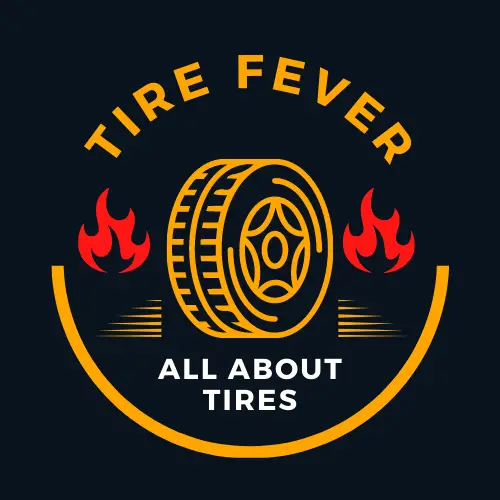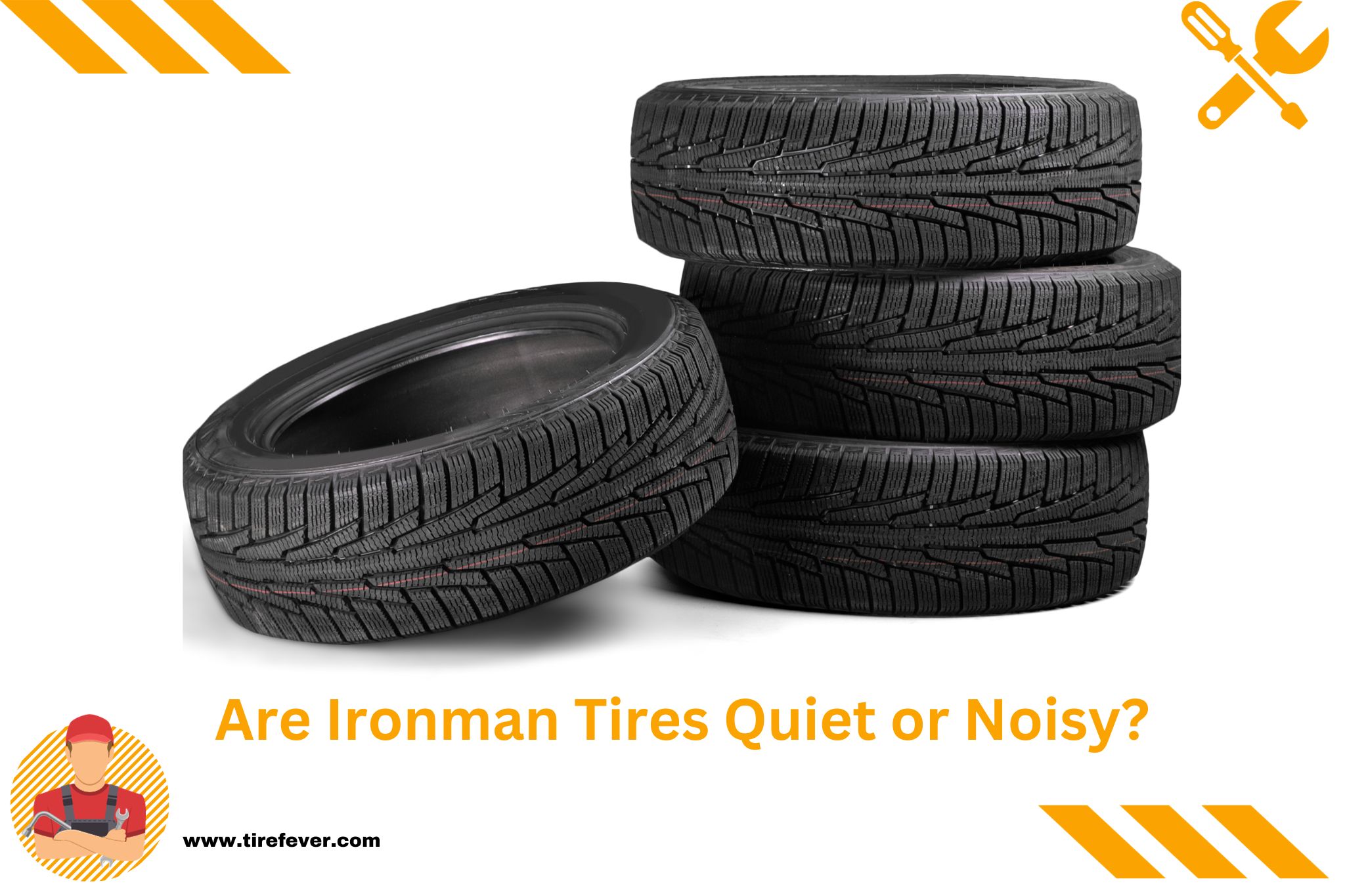Are Ironman tires as quiet as a whisper or as noisy as a roaring engine? That is the burning question on the minds of many car enthusiasts and everyday drivers alike. When it comes to choosing the right tires for your vehicle, noise level is often a crucial factor to consider. After all, who wants to endure a constant symphony of road noise during every drive? In this blog post, we will explore the noise levels of Ironman tires, providing you with the information you need to make an informed decision and enjoy a peaceful and serene driving experience.
Ironman tires have gained a reputation for their durability, performance, and affordability, but their noise level remains a topic of debate among drivers. Some swear by the hushed whispers of these tires, claiming that they provide a smooth and quiet ride even on rough roads. Others, however, have experienced a different reality, where the tires produce an audible hum or rumble that can be quite distracting. To truly understand the noise level of Ironman tires, we must delve deeper into their construction, design, and the materials used. So, let’s embark on this journey together and uncover the truth about the noise levels of Ironman tires.
Are Ironman Tires Quiet or Noisy?
When it comes to buying new tires a lot of factors come into play. One big one is tire noise. This is a crucial aspect that most drivers can’t ignore as they embark on their tire-searching journey.
So, are Ironman Tires quiet or noisy? Ironman Tires are generally quiet, providing a smooth and quiet ride for drivers.
In a hurry here are our top 6 tire recommendations:
- Best Budget Tires
- Best Mid-Range Tires
- Best All-Season Tires
- Best Summer Tires
- Best Winter Tires
- Best Performance Tires
Understanding Tire Noise
Tire noise refers to the sound produced by the tires as they roll on the road surface. It is an important aspect of vehicle performance and can significantly impact the comfort and overall driving experience.
Understanding tire noise involves recognizing the different types of noises and their causes. One common type of tire noise is known as tread pattern noise, which is generated by the interaction between the tire tread and the road surface.
This noise can vary depending on the design and depth of the tire tread, as well as the road conditions. Another type of tire noise is known as tire whine, which is typically caused by uneven wear or misalignment of the tires. This noise can be more noticeable at higher speeds and may indicate the need for tire rotation or alignment.
To understand tire noise, it is important to consider the factors that contribute to its generation. One such factor is tire design, including the tread pattern and the materials used. Different tread patterns can produce varying levels of noise, with more aggressive patterns generally generating more noise.
Road conditions also play a significant role in tire noise, as rough or uneven surfaces can amplify the sound. Finally, tire maintenance and proper inflation are crucial in reducing tire noise. Underinflated or overinflated tires can lead to increased noise levels, as well as uneven wear, which can further contribute to tire noise.
Also Read: goodyear assurance weatherready vs michelin crossclimate 2
Factors Influencing Tire Noise
There are a number of factors influencing tire noise. These include:
Tread pattern:
The design and arrangement of the tread pattern on a tire greatly affects the amount of noise it produces. Tires with aggressive tread patterns, such as those found on off-road or winter tires, tend to generate more noise compared to tires with smoother and less aggressive tread patterns.
Tire compound:
The type of rubber compound used in a tire can also impact its noise level. Softer rubber compounds, often used in high-performance tires, tend to generate more noise as they grip the road surface more aggressively, resulting in increased friction and noise.
On the other hand, harder rubber compounds, commonly used in all-season or touring tires, can provide a quieter ride.
Tire size:
The size of the tire, particularly the width and aspect ratio, can influence the amount of noise it produces. Wider tires generally produce more noise compared to narrower ones, as the wider contact patch creates more friction and consequently more noise.
Additionally, tires with a lower aspect ratio (shorter sidewalls) may generate more noise due to reduced cushioning and increased rigidity.
Tire age and wear:
As tires age and wear down, they tend to produce more noise. This is because the tread becomes shallower, reducing the tire’s ability to absorb road vibrations and noise. Additionally, worn-out tires may develop irregular wear patterns, leading to increased noise levels.
Other factors influencing tire noise include road surface conditions, vehicle speed, and air pressure in the tires. It’s important to consider these factors when selecting tires, as noise levels can greatly impact the overall comfort and driving experience.
You May Also Like: Michelin Tire Chunking
Are Ironman Tires More Quiet Than Other Brands?
Ironman tires are not necessarily more quiet than other brands as noise levels can vary depending on the specific tire model and design. Factors such as tread pattern, tire size, and road conditions also play a significant role in determining the noise level of a tire.
However, some Ironman tire models may offer quieter performance compared to certain other brands, as they are designed with features such as advanced tread compounds and noise-reducing technologies. It is important to research and compare specific tire models from different brands to determine which one offers the quietest performance for your specific needs and preferences.
Are Ironman Tires More Noisy Than Other Brands?
Ironman tires are not necessarily more noisy than other brands. The noise level of a tire depends on various factors such as the tread pattern, tire size, and the type of vehicle it is installed on. While some Ironman tire models may produce more noise due to their specific design, it is not a characteristic that can be generalized to all Ironman tires.
When comparing tire brands, it is important to consider the specific tire model and its intended use. Some Ironman tire models may prioritize performance and traction, which can result in a noisier ride. However, other Ironman tire models may be designed for a quieter and more comfortable driving experience. Therefore, it is essential to research and read reviews on specific Ironman tire models to determine their noise level and suitability for your needs.
What Ironman Tires are the Quietest?
When it comes to finding the quietest Ironman tires, there are a few options worth considering. Here are three key points to keep in mind:
- Ironman iMove Gen2 AS: This tire offers a quiet and comfortable ride, thanks to its advanced tread design and optimized pitch sequence.
- Ironman RB-12 NWS: Known for its noise-reducing capabilities, this tire features a unique tread pattern that minimizes road noise.
- Ironman GR906: Designed with noise reduction in mind, this tire utilizes a specialized tread compound and pattern for a quiet driving experience.
Ultimately, the quietness of a tire can vary depending on factors such as road conditions and vehicle type, so it’s important to consider individual preferences and requirements when choosing the right Ironman tire.
What Ironman Tires are the Noisiest?
When it comes to Ironman Tires, noise levels can vary depending on the specific model. Here are 3-6 Ironman Tires that are known for being the noisiest:
– Ironman iMove Gen2 SUV: This tire has been reported to produce a significant amount of road noise, especially at higher speeds.
– Ironman All Country M/T: While this tire offers excellent off-road performance, it tends to generate noticeable noise on paved surfaces.
– Ironman RB-12 NWS: Some users have reported that this tire produces more road noise compared to other Ironman models.
– Ironman iMove Gen2 AS: Although it provides good traction and handling, this tire can be relatively noisy on certain road surfaces.
Please note that noise levels can also be influenced by factors such as road conditions, vehicle type, and driving habits.
Ironman Tires Aproach to Noise Reduction
Ironman Tires has adopted an innovative approach to noise reduction in their products. Here are some key points regarding their approach:
- Advanced tread pattern design to minimize noise generation
- Utilization of noise-absorbing materials in tire construction
- Integration of noise-cancelling technology to reduce road noise
- Extensive testing and research to ensure optimal noise reduction performance
- Commitment to providing a quieter and more comfortable driving experience
By implementing these strategies, Ironman Tires aims to enhance customer satisfaction by delivering tires that not only offer excellent performance but also minimize noise levels for a quieter and more enjoyable ride.
Related: Are Michelin Tires Quiet or Noisy?
Conclusion
Ironman Tires are generally quiet, providing a smooth and quiet ride for drivers. However, noise levels can vary depending on the specific tire model and design, as well as factors such as tread pattern, tire size, and road conditions. Some Ironman tire models may offer quieter performance compared to certain other brands, thanks to features such as advanced tread compounds and noise-reducing technologies. It is important to research and compare specific tire models to determine which one offers the quietest performance for your needs.
This post contains affiliate links. Read the full disclosure here.


I am passionate about all things automotive and have a deep understanding of the topic. As a mechanic, I use my free time to share knowledge of everyday challenges that any car owner can experience – helping you make informed decisions about tires.

